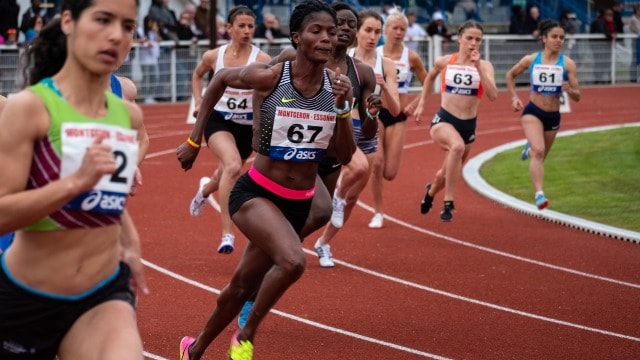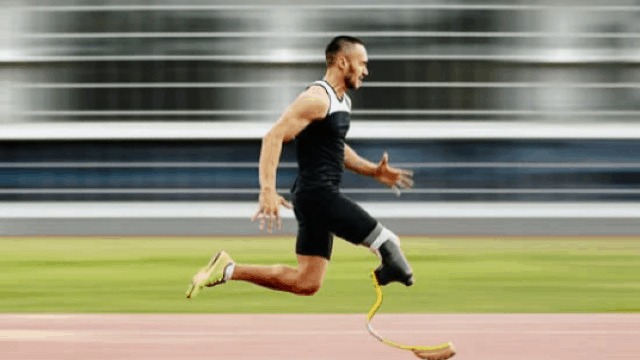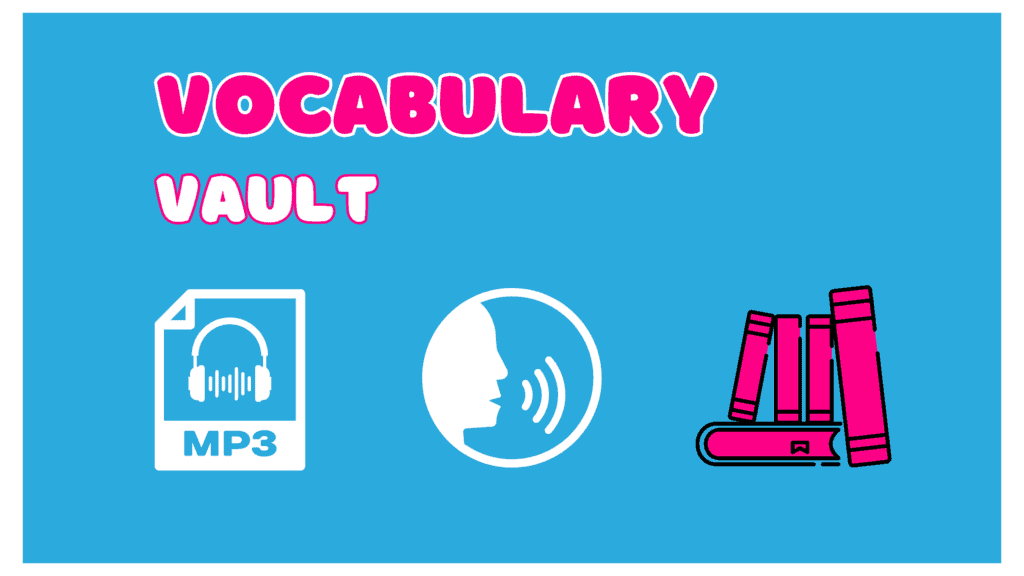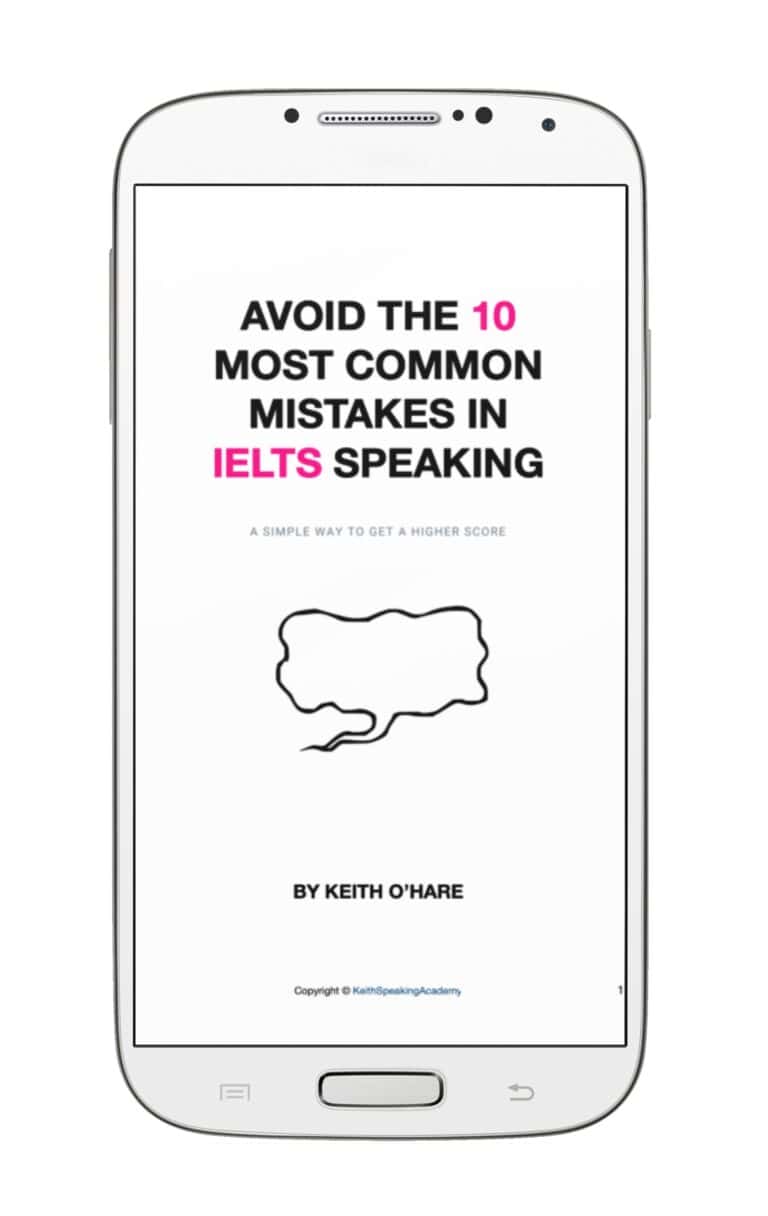IELTS Speaking Lesson about The Olympics
👇 Take this lesson with you! 👇
Table of Contents
IELTS Speaking vocabulary: The olympics
When talking about the Olympics, one of the most common verbs is
To compete (v.)
Do you know the word family of the verb ‘to compete’?
Try and fill in the gaps below, and let’s see!
There were a lot of ___________(n.) from Italy _________(v.) in this _________ (adj.) _____________ (n.)
Click arrow to open/close answers
There were a lot of competitors (n.) from Italy competing(v.) in this competitive (adj.) competition (n.)
- Compete (v.)
- Competitor (Person)
- Competition (n.) Countable (=race, contest)
I am competing in a competition
- Competition (n.) Uncountable (=desire to win)
There is a lot of competition to take people to the moon
- Competitive (adj.)
_______________________
Here are the prepositions we usually use with the verb ‘to compete’:
India has competed in Japan in the Olympics
India has competed against many other countries in the Olympics
When it comes to the different parts of a competition, we have the following events in order:
- The qualifying rounds OR The heats
- The semi-final
- The final
- An Olympic record = the fastest, best in the Olympics
- A world record = the fastest, best in the World
- A personal best = the fastest, best ever for that athlete
To qualify for the final = to succeed in making it to the final
To be disqualified = kicked out from/of a competition for breaking the rules
He was disqualified for taking drugs before the event.
A false start = when you accidentally start running before the starting gun sounds.
Unqualified = not having the qualification / certificate to do it.
Here is the vocabulary you need to talk about medals.
- To win a gold, silver, bronze medal
- She is an olympic medalist
- She is an olympian
- To make it to the podium
- The medal ceremony
Different olympic sports

Athletics (n.)
I love athletics
Athletics includes races and competitions where there is running, walking, jumping, and throwing.
- Athletics (n.)
- An athlete (Person)
- Athletic (adj.) = sporty
Learn more about Olympic sports here:
What are the 6 category names of the sport / events below?
- _____ and _____(e.g. discus, hammer, 100m, high jump, long jump…)
- ________________ (e.g. artistic, floor, pommel horse, beam…)
- _____ __________(e.g. swimming, canoe, diving…)
- _____ __________ (e.g. boxing, Taekwondo, wrestling, judo…)
- _______ __________ (e.g. volleyball, football, hockey…)
- _______ ________ (e.g. shooting, archery…)
Click arrow to open/close answers
- Track and field (discus, 100m, high jump, long jump…)
- Gymnastics (artistic, floor, pommel horse,
- Water sports (swimming, canoe, diving…)
- Fighting sports (boxing, Taekwondo, wrestling, judo…)
- Team sports (volleyball, football…)
- Individual sports (shooting, archery…)
There are many other categories, too, such as,
Equestrian Sports – (any competitive event with a horse)
IELTS Speaking discussion: Role of the olympic games
There is a lot of controversy about it (=heated debate, discussion)
They help build ____
They help foster ____
- international unity
- friendship
- understanding
- empathy
They help bridge ____
- the political divide between countries
- the gap between different cultures
- the differences between people
They inspire young people to
- be the best they can
- excel in their given field (=to do very well)
- practice more sport
HOWEVER
The money spent on infrastructure could be (stadiums, roads, hotels…)
- better spent on…..schools, hospitals etc…
- put to better use
Watch some great programmes about the Olympics
IELTS Speaking topic: The paralympics

The Paralympics take place straight after the regular Olympics. They were officially founded in 1989 in Germany.
The Paralympics _____
- raise awareness of people with disabilities / with impairments
- offer disabled people the chance to compete
- challenge the boundaries set by society
To qualify for the Paralympics, you need an underlying health condition, such as:
- Visual impairment
- Impaired muscle power
- To be an amputee (=you have lost a limb, e.g. an arm)
- Restricted movement of joints
Learn more about the Paralympics here
IELTS Speaking idioms: The olympics
Here are some idioms you can use to talk about the Olympics and other sports events.
- To be the underdog = the team/ person that is not expected to win
- To be the favourite = is the team/ person who is expected to win.
Some say, Elaine Thompson was the underdog,but she won the 100 meters breaking the world record!
- It blew me away = it was very impressive
Her performance in the semi-final blew me away
- She blew the competition away = She was much better than the rest
To give it your best shot = do your best
To throw someone a curveball = surprise someone with a situation, problem
When Dina Asher-Smith didn’t qualify for the final, that really threw us a curveball
- To be neck and neck = to be equal / level during a race
They were neck and neck right up until the finishing line, and then it was a photo finish.
A nail-biting final = very exciting
That was the most nail-biting final I have ever watched

Pronunciation Files For Vocabulary From My Best Live Lessons
Use Words EASILY in English Conversations!
More Free IELTS Speaking Lessons
Feelings in IELTS Speaking. Vocabulary you need to describe a range of different feelings, as well as talking about topical issues such as, mental health
Comedy in IELTS Speaking. Learn different types of comedy and idiomatic expressions related to comedy and jokes.
Mobile phones in IELTS Speaking. Learn vocabulary of phones and ideas to talk about how we use phones in our lives.


